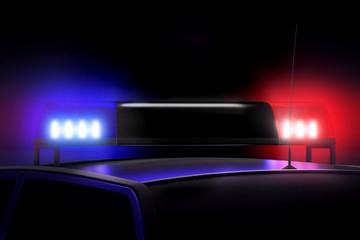White-Collar Crime
Monday, February 24th, 2020
In 1939, the American Sociologist, Edwin Hardin Sutherland introduced the concept of white-collar crime, and defined it as “a crime committed by a person of respectability and high social status in the course of their occupation.”
While criminal prosecutions primarily take place on a state level, white- collar crimes are often prosecuted on the federal level, often because they are committed crossing state lines.
In the result of a white-collar crime, there is generally a financial gain at the expense of another, and there is no violence involved.
Some examples of white-collar crimes are: Fraud, identity theft, embezzlement, money laundering, employee theft, credit card theft, asset forfeiture, mail and wire fraud, and last but not least, extortion.
If charged with a white-collar crime one faces financial penalties, or even prison time, depending on the specific allegations. In many situations however, one’s professional license can be compromised in the result of a conviction or even just an investigation for an alleged white -collar crime. Therefore, it is important to consult with an attorney as soon as you become aware of an investigation or a charge pending against you.
If you are charged or investigated for an alleged white-collar crime in Southeastern North Carolina, in or around Wilmington, NC, in New Hanover County, Brunswick County, or Pender County, call Collins Law Firm at 910-793-9000 for a confidential consultation.
By Jana H. Collins



 Memorial Day is right around the corner, and for those of us near the coast, this means considerably higher traffic along our thoroughfares as vacationers flock to the beach for the holiday weekend. Ranking as one of the top ten most visited states for domestic travel, NC commonly experiences increased roadway congestion. What this weekend should also remind us of, however, is the extreme importance of automobile safety as our loved ones submit themselves to the mercy of their fellow drivers among our state’s highways. This sentiment is echoed by Governor Pat McCrory, who has officially declared May Seat Belt Safety Awareness Month. At 42% percent, almost half of passenger vehicle fatalities last year can be attributed to drivers or passengers not wearing seat belts.
Memorial Day is right around the corner, and for those of us near the coast, this means considerably higher traffic along our thoroughfares as vacationers flock to the beach for the holiday weekend. Ranking as one of the top ten most visited states for domestic travel, NC commonly experiences increased roadway congestion. What this weekend should also remind us of, however, is the extreme importance of automobile safety as our loved ones submit themselves to the mercy of their fellow drivers among our state’s highways. This sentiment is echoed by Governor Pat McCrory, who has officially declared May Seat Belt Safety Awareness Month. At 42% percent, almost half of passenger vehicle fatalities last year can be attributed to drivers or passengers not wearing seat belts. The resentment towards police departments by community activists who have portrayed law enforcement as racist who routinely shoot black Americans, for essentially no reason, has caused a substantial increase in shootings and murders all across the United States in recent years. This idea has become what is known as “The Ferguson Effect.”
The resentment towards police departments by community activists who have portrayed law enforcement as racist who routinely shoot black Americans, for essentially no reason, has caused a substantial increase in shootings and murders all across the United States in recent years. This idea has become what is known as “The Ferguson Effect.” Orange County, NY Legislator Mike Anagnostakis (R-Montgomery, Newburgh) was elated when law he had proposed─Rocky’s Law─was voted unanimously and thereby approved by Orange County, NY Legislators. Pursuant to Rocky’s Law, Orange County Residents convicted of abusing animals are required to register within five days of being convicted or released from jail or prison. Failure to register may result in a fine of up to $2,000 and a year in jail. First time offenders will be prohibited from owning a companion animal for 15 years, and repeat offenders will be barred from owning a companion animal for the rest of their life.
Orange County, NY Legislator Mike Anagnostakis (R-Montgomery, Newburgh) was elated when law he had proposed─Rocky’s Law─was voted unanimously and thereby approved by Orange County, NY Legislators. Pursuant to Rocky’s Law, Orange County Residents convicted of abusing animals are required to register within five days of being convicted or released from jail or prison. Failure to register may result in a fine of up to $2,000 and a year in jail. First time offenders will be prohibited from owning a companion animal for 15 years, and repeat offenders will be barred from owning a companion animal for the rest of their life. Kelly Gissendaner was executed on Wednesday at 7pm, with respect to her sentence of the death penalty for engineering the murder of her husband in 1997, despite both her children and even Pope Carlo Francis’ wishes. After visiting the United States, the pope sincerely requested in writing that the state of Georgia not follow through with the execution of Ms. Gissendander as stated below:
Kelly Gissendaner was executed on Wednesday at 7pm, with respect to her sentence of the death penalty for engineering the murder of her husband in 1997, despite both her children and even Pope Carlo Francis’ wishes. After visiting the United States, the pope sincerely requested in writing that the state of Georgia not follow through with the execution of Ms. Gissendander as stated below: